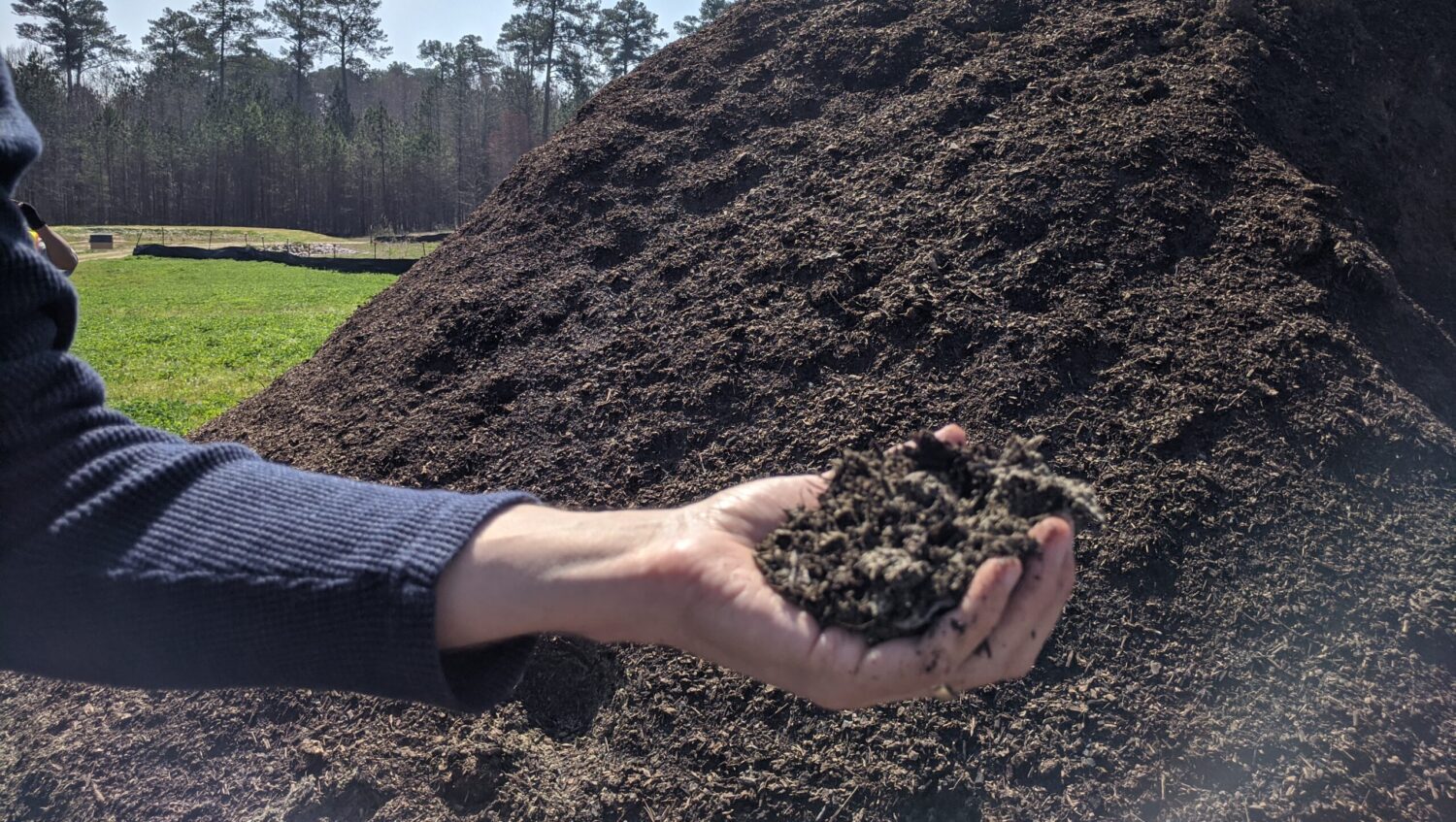Compost Conversation with Adam Bensley

The following post was written by Nate Smith, a horticultural specialist with Landscape Services.
In this compost conversation, Adam Bensley, waste diversion coordinator for Waste Reduction and Recycling, shares how NC State’s Facilities Division developed a sustainable solution to the rising costs and environmental impacts of traditional mulches for campus landscapes.
What is the benefit of producing our own mulch at NC State University instead of outsourcing it?
Taking resources from campus that we would normally have to pay to get rid of, and processing them into a high-quality product, aligns with the sustainability value in the university’s strategic plan, as well as the Facilities Division’s strategic goal of stewardship. There is also tremendous cost savings to the university by producing our own mulch rather than purchasing it from an off-campus vendor.
One difference between the mulch we make and the mulch we purchase is that our mulch actually goes through the composting process, which kills weed seeds and pathogens. This means that our mulch is free of weed seeds, which provides further cost savings from the reduced spraying of post-emergent chemicals. Another benefit is that our mulch is heavier and stays in place when leaves are blown off the top of it, an unavoidable practice during the North Carolina fall season.
How is compost mulch made at the NC State Compost Facility and Research Cooperative?
Compost mulch is made by composting animal bedding from the College of Veterinary Medicine (CVM) with wood chips and some finished compost. This feedstock is mixed at specific ratios and placed on compressed air until time and temperature requirements are met to kill pathogens and weed seeds.
How long has NC State been producing compost mulch for campus landscapes?
Mulch production started during the pandemic in 2020 when food waste largely stopped coming to the Compost Facility. The supply of animal bedding and wood chips remained constant, so making a mulch product arose from needing to manage the feedstock we were still receiving. While mulch serves a different purpose than compost, it is something that is in high demand across campus.
At present, the Compost Facility and Research Cooperative’s 3-acre site can process up to 1,200 tons of organic waste annually and is currently collecting materials across campus, including dining halls, residence halls and apartments, student centers, CVM, JC Raulston Arboretum, special events and more.